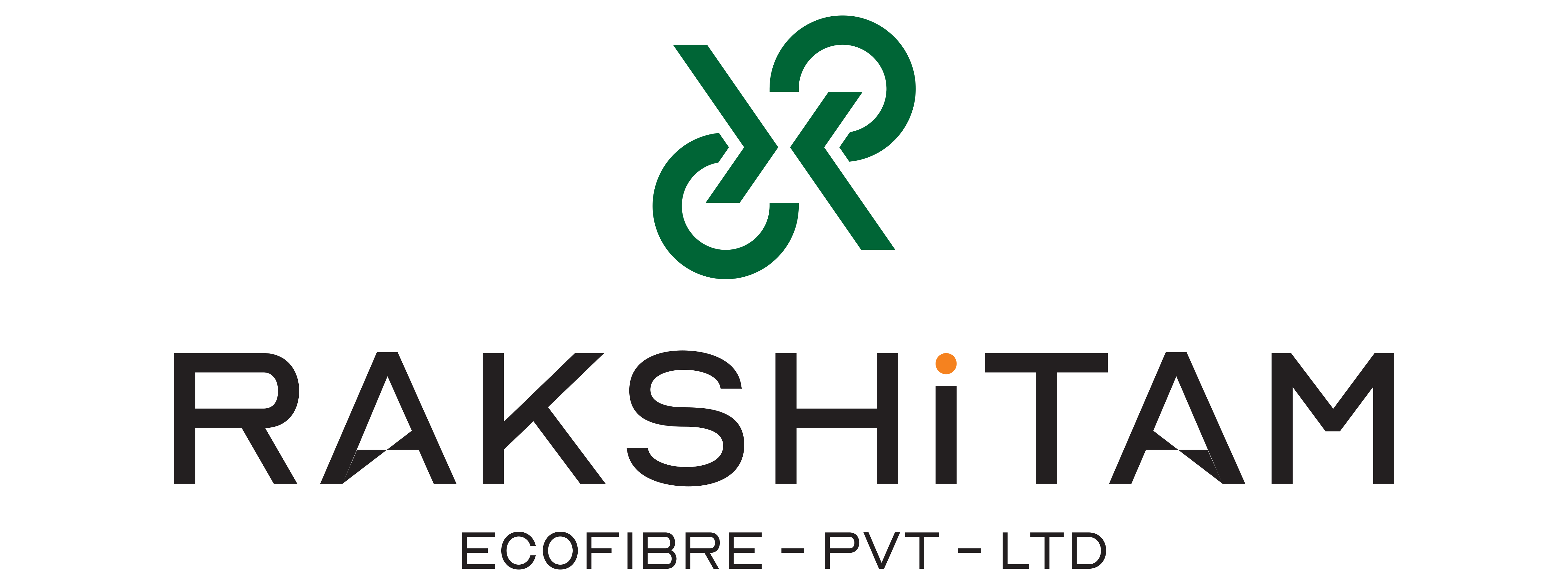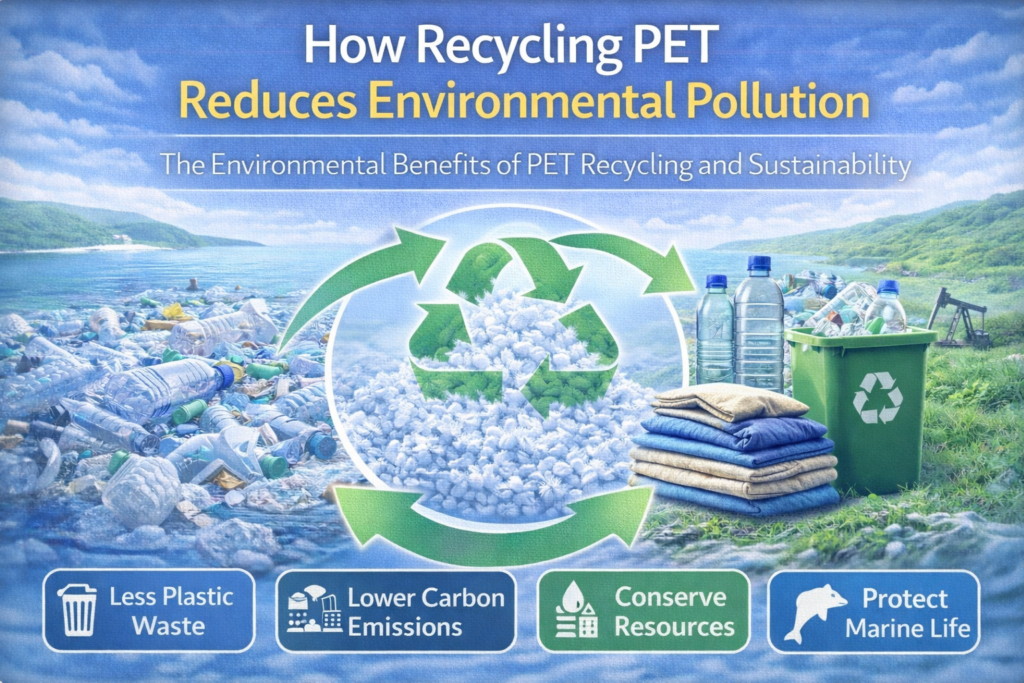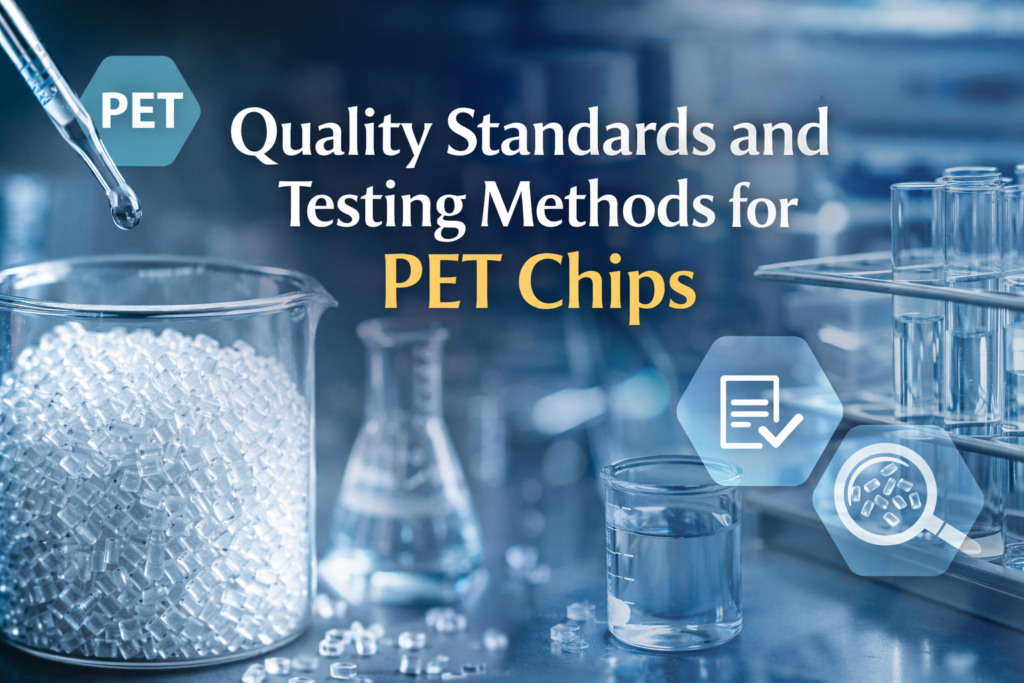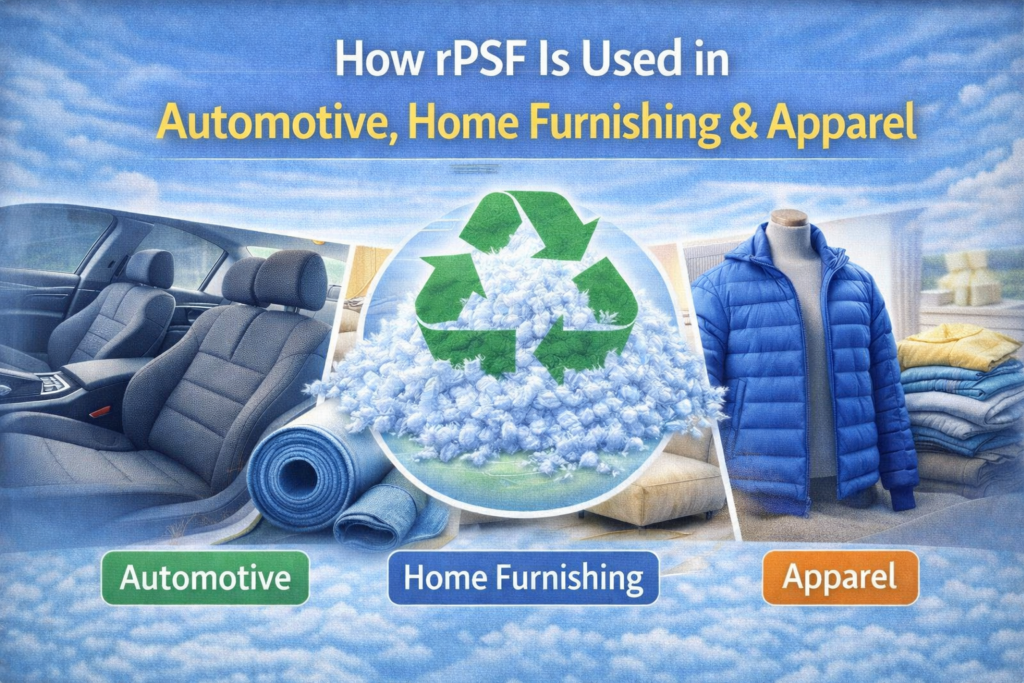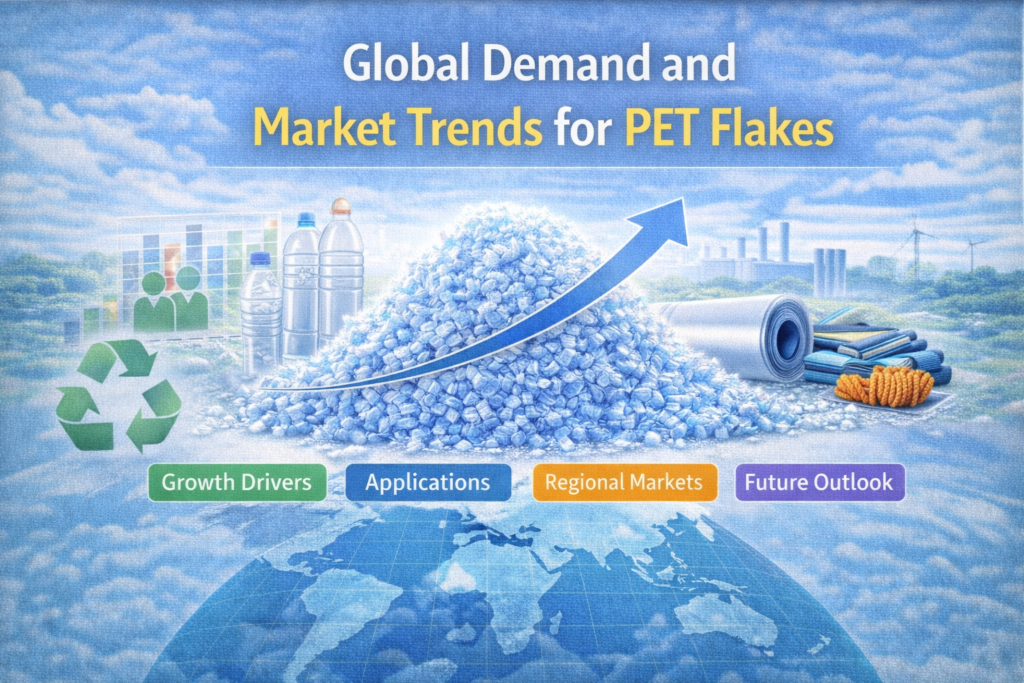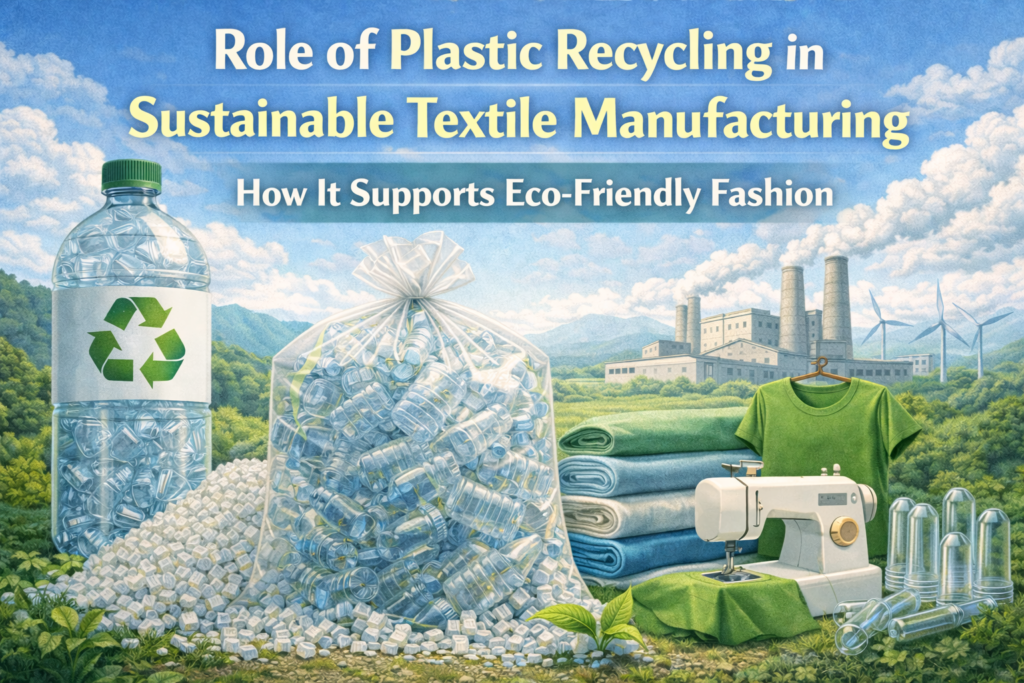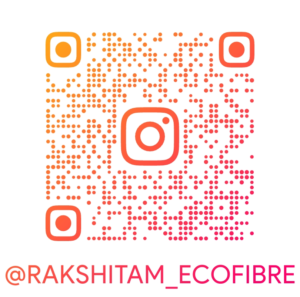The need for sustainable practices across the world has changed the way industries deal with unwanted plastic. The reprocessing of used PET bottles into PET flakes is one of the industry’s most inventive and sustainable approaches. PET flakes are now essential for various industries as they help in converting waste into treasures and achieving the objectives of the circular economy.
In this blog, we discuss the key industries that process PET flakes into everyday products and how innovations are helping achieve sustainability.
What are PET flakes?
PET flakes are the small, cleaned, and processed pieces of PET bottles. They are also regarded as raw materials of great importance, the shredded and washed post-consumer bottles. After post-consumer plastic bottles are collected and sorted, they undergo shredding and washing into the form of flakes.
1. Textile and Apparel Industry
The textile industry has become one of the leading consumers of PET flakes, especially for producing recycled polyester fibers or rPET.
Commonly used:
- T-Shirts
- Jackets
- Sportswear
- Backpacks
- Footwear
The rPET has been integrated into the supply chains of Adidas, H&M, and Nike, which now provide consumers with fashionable and functional pieces without loss of sustainability.
2. Packaging sector
Flakes of PET are utilized in the packaging industry as a raw material within the production of shredded bottles, containers, and food-grade packaging. This is “bottle-to-bottle recycling,” and PET is never thrown away, but recycled back into the production cycle.
Core Products:
- Soft drink and water bottles
- Food containers
- Cosmetic and personal care packaging
With increasing government regulations and consumer demand for sustainability, most FMCG firms now implement rPET packaging.
3. Automotive Sector
PET flakes are also transforming automotive interiors. Recycled polyester fibers extracted from PET flakes find application in car seat covers, trunk liners, carpeting, and insulation.
Advantages:
- Lighter in weight and long-lasting
- Lower carbon footprint
- Improved thermal insulation
This not only addresses green objectives but also leads to better fuel efficiency with lighter vehicle content.
4. Building & Construction Materials
In building construction, PET flakes are also being integrated into plastic lumber, insulation panels, roof sheets, and even structural composite materials.
Benefits:
- Extremely durable
- Water and corrosion resistant
- Lightweight and economical
The use of rPET in infrastructures helps earn green building certifications and decreases virgin plastic dependency.
5. Household Products & Consumer Goods
Most common household goods are now produced using PET flakes, including:
- Cleaning product containers
- Storage containers
- Garden tools
- Kitchen utensils
- Toys
This broad use is testament to an increasing dedication by producers to adopt recycled materials across product groups.
Why Industries Are Moving Toward PET Flakes
Several reasons are propelling industries toward PET flakes:
- Environmental Responsibility: Minimizing plastic pollution and aiding circular economy initiatives.
- Cost Efficiency: PET flakes tend to be cheaper than virgin plastic.
- Compliance: Governments are compelling the use in packaging and products.
- Brand Image: Green practices enhance brand image and customer confidence.
Also Read: Recycled Polyester Staple Fiber in Gujarat: How Rakshitam Ecofibre Powers rPET Innovation in India
Final Thoughts
The mass application of PET flakes industry-wide exhibits how innovation, sustainability, and financial gain can coexist. From the garments on our backs to the packaging on which we open our daily foods, PET flakes are emerging as a strong remedy in plastic waste reduction and a circular future.
As increasing numbers of industries incorporate PET flakes into their manufacturing cycles, the possibilities for green growth increase, building a cleaner and more responsible world for future generations.
